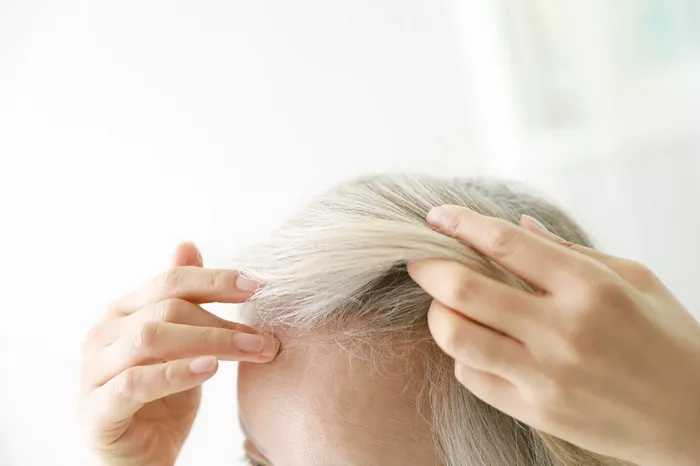Lindsey Swift, a 51-year-old aesthetic nurse from Leeds, never imagined that after undergoing breast cancer treatment in 2019, her battle with hair loss would continue for years. While she anticipated losing her long blonde hair during chemotherapy, she was shocked to find that four years later, her hair had not grown back to its original fullness, especially around her hairline and crown.
Having undergone surgery, six cycles of chemotherapy, and 15 rounds of radiotherapy, Lindsey shaved her head for charity in preparation for the treatment. However, when her hair began to regrow two months after completing chemotherapy, it came back thinner and uneven, particularly at the front.
“I looked like some men do with a really receding hairline,” she recalls. “It was devastating. I lost my confidence and avoided going out as much. I no longer felt feminine.”
Lindsey tried every solution available, from minoxidil sprays designed to stimulate blood flow to hair follicles to alternative treatments like rosemary oil massages. Despite these efforts, her hair showed little improvement, and the frustration grew. She even spent £2,000 on a high-quality wig but still felt self-conscious about her appearance.
By 2021, as Lindsey married her partner Neil, she wore a flower crown to cover the bald patches and insisted that no photos show the top of her head. It was at this point she considered a hair transplant, but the £5,400 cost made her hesitate.
Then, through a colleague, Lindsey discovered a groundbreaking treatment involving exosome injections—a therapy that had recently been explored for hair regrowth. Exosomes are naturally occurring particles that carry growth factors and bioactive compounds, potentially stimulating inactive hair follicles and encouraging new hair growth.
The use of exosomes in medicine has garnered attention for over two decades, particularly in the field of wound healing. Recently, however, scientists have started investigating exosome therapy as a solution for hair loss, offering new hope for those like Lindsey.
Dr. David Ansell, an assistant professor at the University of Bradford’s Centre for Skin Sciences, explains that exosomes act like tiny communication bubbles between cells, helping them repair and regenerate. “Exosomes derived from stem cells seem to offer the best potential for stimulating tissue and hair follicle growth,” he says.
Although exosome therapy is still in the experimental phase, early studies, including one from Wuhan University in China, show promising results in wound healing. A 2024 study from Turkey also demonstrated that exosome injections led to increased hair density in men with male pattern baldness, though the overall effectiveness of the therapy remains under review.
Despite its promise, experts caution that more research is needed before exosome therapy becomes a widely accepted treatment for hair loss. Concerns about long-term side effects, including the potential for over-stimulation of cell growth, have been raised. As Dr. Ansell points out, “There’s still a lot to learn about this treatment’s long-term impact.”
Nonetheless, Lindsey decided to proceed with the treatment in March 2023, after hearing about its potential. The exosome therapy she received, called E50-H Exosomes for Hair, involved four sessions spaced four weeks apart, with each treatment costing £100. The exosomes used in her therapy were derived from salmon testes, as sourcing them from humans can raise regulatory and disease transmission concerns. The process involves microneedling to create tiny channels in the scalp, into which the exosome serum is injected.
After completing her sessions, Lindsey is thrilled with the results. “My hair has grown back as thick as it was before,” she says, adding that her confidence has returned. She now feels like the “old Lindsey” again, and her annual mammogram check-ups have reported no concerns.
Although the treatment remains experimental and not yet proven for cancer-related hair loss, Lindsey’s experience offers a glimmer of hope for others suffering from hair loss due to chemotherapy. While exosome therapy may not be the ultimate cure, it has certainly made a significant difference in Lindsey’s life, providing a potential new avenue for hair regrowth.
Related topics:
- 10 Essential Tips for Healthy Hair This Summer
- Javed Akhtar Voices Traya’s New Film on Hair Loss Treatment
- Breakthrough Discovery Brings Us Closer to Regrowing Hair


